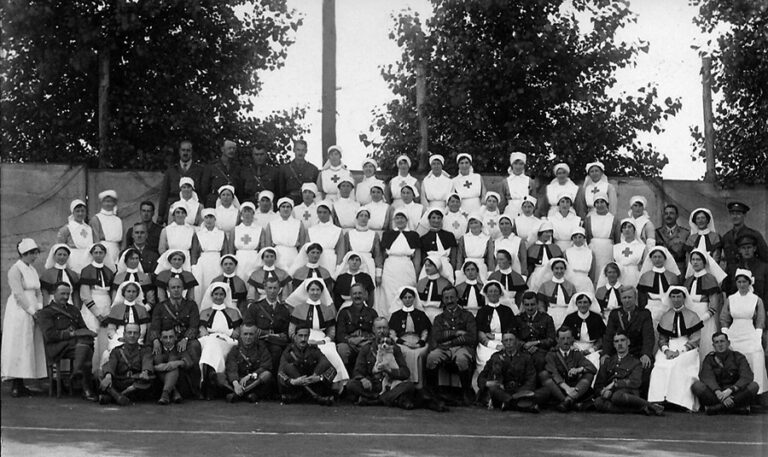The transcription project for WO 399 has been going for a little less than a year, and great progress has been made by our brilliant volunteers. Almost a quarter of the files have been re-transcribed now which is a huge accomplishment. I wrote in August about some of our findings but as the project continues, there is yet more to learn. More than 50 volunteers have already contributed to the project and they have revealed so many fascinating stories and circumstances about life in the military nursing services in this period. I spoke to one of the volunteers about what she has been getting out of the project.
Maggie spoke about ‘the enormous variety of files that give such a fascinating, real and very personal insight into society into the life of nurses during the First World War. These nurses could not possibly have imagined that, over 100 years later, their personal records could be read by people anywhere in the world!’
There is a huge amount of material in these files – for some of the women, their services run to more than a hundred pages, and these files have been weeded! It’s a real insight into the world these women were working in: within most Queen Alexandra’s Imperial Military Nursing Service (QAIMNS) and QAIMNS Reserve files, there is a ‘Casualty Active Service Form’ which details all their postings, with dates and duration, allowing you to plot a nurse’s journey around the globe in service. From France to India, Mesopotamia to Salonika, Scotland to Siberia, military nurses travelled the world to care for the wounded and the sick.

The realities of medical care in this period also loom large in the files. As Maggie observed, ‘the illnesses, diseases (in a pre-antibiotic era) and injuries (both mental and physical) they acquired, emphasising the risks they were under’. In one set which Maggie worked on, in a hundred files there were four deaths, five nurses becoming permanently unfit and a further five leaving the Service on account of their health. She also observed how interesting the personal details of the nurses can be, such as the bravery, described by senior officers, of the nurse during an air raid; the inventory of effects and correspondence after the death of a nurse; the amounts claimed for missing, damaged or lost belongings; the ‘honest and candid’ comments written in appraisals by the matrons, and so forth.
Maggie also points to one of our other most recent calculations, that around one in 10 nurses had to resign from the Service because they were getting married (although, later it was possible for a few nurses to be given permission to continue working … but only if their husband was in the Armed Forces and not if serving in the same unit!). ‘One can’t help but think of the number of experienced and skilled nurses lost to the profession, when they were so much in demand.’
The files have uncovered some fascinating stories. We’ve found sets of siblings who served with the forces, women who met their life partners while nursing and went on to live together for the rest of their lives, women who saved the lives of their fellow nurses by their quick action, but paid the ultimate price. It is a privilege and a pleasure to work on their records. Maggie has summed this up brilliantly:
‘What keeps me “doing just another entry” is the pure variety of each record, each holding the possibility of uncovering another insight or story, then wondering who might make use of this treasure-trove of information. Family historians? Writers of historical fiction or scripts so that their story can be “based on true events”? Or, perhaps, a historian researching just one of the many aspects of life or war these files reveal? One thing is certain, they are never dull!’
I want to take the opportunity to thank our volunteers for all their hard work. We are not currently able to take on any new volunteers, but I am hugely grateful to everyone for all their hard work!